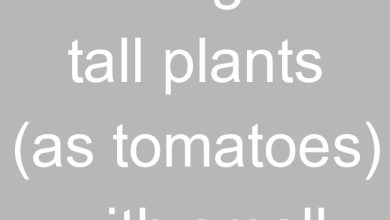Green Gardening: How to Use Cat Poop Safely and Effectivel

Cat excrement in garden soil is not only unpleasant to smell when working in the vegetable patch, but it may also be harmful. According to the University of California Master Gardener Program of Contra Costa County, it may include germs and parasites like as toxoplasmosis. Vegetables cannot be grown safely in a polluted garden bed unless the top layer of dirt is excavated and removed. That doesn’t imply your whole vegetable garden bed is damaged because a cat uses it as a potty on occasion. It is feasible to save your garden while simultaneously deterring troublesome dogs from returning.
Dangers of Cat Feces
People with strong immune systems may have few, if any, negative consequences from casual contact with cat excrement, but this is not true for everyone. According to the Alameda County Master Gardener Program, disease-causing parasites such as Toxoplasma gondii reside in the feces of infected cats and may cause miscarriages in pregnant women as well as significant sickness in immunocompromised persons and children. The virus not only affects pregnant women, but it may also be passed on to their unborn children, causing illness later in life. Salmonella and E. coli, as well as hookworms and roundworms, are often found in cat feces.
The first line of defense against disease is to practice excellent cleanliness while working in the garden. When working in the garden, use gloves and thoroughly wash your hands with hot, soapy water afterward. Before bringing vegetables inside, it should be properly cleaned and then cleansed again before storage and usage.
Removing Cat Feces From Garden Beds
Cats enjoy soft dirt that is simple to dig in, so it’s no surprise that they are attracted to properly tilled beds with friable ground. Cats are also creatures of habit, returning to the same location repeatedly, which may rapidly develop to a big pile of excrement if the problem isn’t monitored and corrected. Wearing rubber gloves and a dust mask, sweep up any excrement as well as the surrounding dirt with a shovel. Place it in an outside trash bin in a plastic bag.
Any product that has come into touch with excrement should also be discarded, particularly subterranean root crops like carrots. Although the impact of cat urine on plants and garden soil is insignificant in terms of health, it should nonetheless be washed off the plants to eliminate the odor and avoid leaf damage.
Preventing Cat Feces in Garden Beds
Making your vegetable garden less appealing and less accessible to trespassers is the key to preventing cats from using it as a litter box. According to the Alameda County Master Gardeners Program, the barrier system is the most successful means of keeping cats out of garden beds. Make a cover from of chicken wire for the whole bed or a floating row cover for each row of vegetables. Although chicken wire helps block access to the bed, it may make the location less appealing to cats since they loathe the feel of wire against their paws. Chicken wire may also be used to cover raised beds, which cats like since they have looser dirt.
Another way to deter cats is to embed bamboo skewers or chopsticks into the dirt at 8-inch intervals to make the surface difficult for them to walk on. Black mulch fabric may be used to cover the soil between plants, but it is not always a suitable option in hotter areas since it might cause the soil to overheat. Motion-activated sprinklers, noisemakers, and cat repellent sprays may help keep cats away, although they work best in conjunction with barrier approaches.





